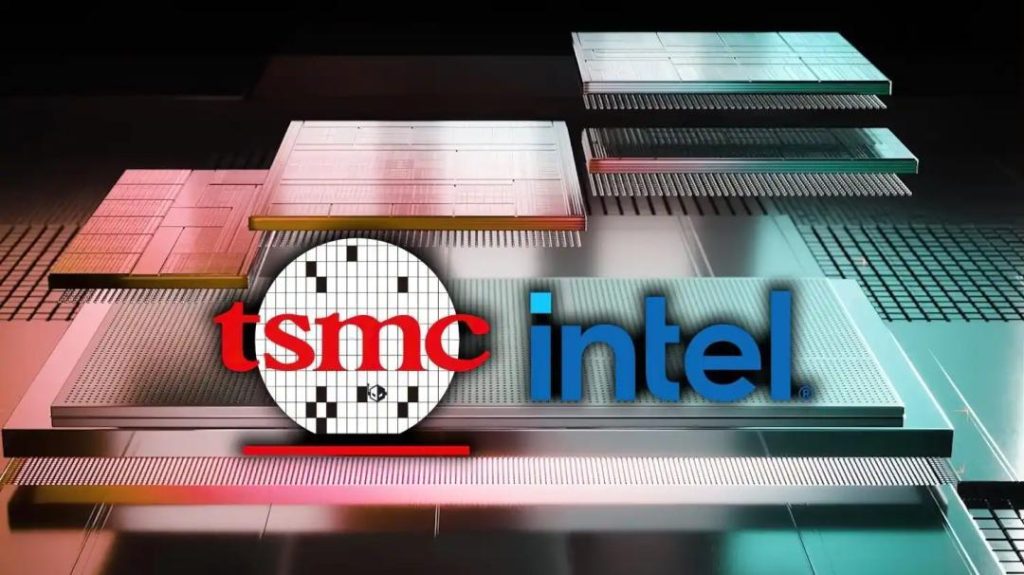
TSMC May Run Intel’s US Plants on Trump’s Team Request: Report
In a move that could have far-reaching implications for the global semiconductor industry, Taiwan Semiconductor Manufacturing Co. (TSMC) is reportedly considering purchasing a controlling stake in Intel’s US chip factories. According to a Bloomberg report, officials from President Donald Trump’s administration recently met with TSMC to pitch the idea, citing Intel’s declining financial state as a key factor in the proposal.
The potential deal has sent shockwaves through the tech industry, with many experts wondering what this could mean for the future of chip manufacturing in the United States. In this blog post, we’ll take a closer look at the proposed deal and what it could mean for TSMC, Intel, and the global semiconductor industry.
Why is Intel’s financial state a concern?
Intel, one of the world’s largest and most successful semiconductor companies, has been facing significant challenges in recent years. The company has struggled to keep up with the rapid pace of innovation in the chip industry, and its revenue has been declining as a result.
In addition, Intel has been investing heavily in new technologies and manufacturing processes, which has put a strain on the company’s finances. The company’s capital expenditures have been increasing steadily over the past few years, and its debt levels have been rising as a result.
Why is TSMC interested in Intel’s US factories?
TSMC, on the other hand, is one of the world’s largest independent semiconductor foundries, and it has been looking to expand its presence in the US market. The company has already established a significant presence in the country, with a plant in Arizona and a research and development center in California.
By purchasing a controlling stake in Intel’s US factories, TSMC would gain access to a significant amount of manufacturing capacity and expertise. The deal would also allow TSMC to tap into Intel’s extensive network of suppliers and customers, which could help the company to expand its reach and increase its revenue.
What would the deal mean for TSMC and Intel?
If the deal were to go through, it would likely have significant implications for both TSMC and Intel. For TSMC, the deal would provide the company with a significant foothold in the US market and access to a large amount of manufacturing capacity.
For Intel, the deal would likely mean a significant reduction in the company’s debt levels and a reduction in its capital expenditures. It could also allow Intel to focus more on its core business of designing and manufacturing chips, rather than worrying about the day-to-day operations of its manufacturing facilities.
What are the potential risks and benefits?
While the potential deal between TSMC and Intel has the potential to be a game-changer for both companies, there are also significant risks and challenges to consider.
One of the main risks is that the deal could be blocked by regulatory authorities, who may be concerned about the potential impact on national security and competition in the chip industry. There are also concerns about the potential impact on Intel’s employees, who may be worried about their jobs and the future of the company.
Despite these risks, there are also significant benefits to the deal. For TSMC, the deal would provide the company with a significant foothold in the US market and access to a large amount of manufacturing capacity. For Intel, the deal would likely mean a significant reduction in debt levels and a reduction in capital expenditures.
What does the White House say about the deal?
According to a White House official, President Trump is unlikely to support a foreign entity operating Intel’s factories. The official stated that the administration is committed to supporting American businesses and workers, and that allowing a foreign company to operate Intel’s factories could be a threat to national security.
It’s worth noting that the White House’s stance on the deal is not necessarily a guarantee that the deal will not go through. The administration’s views on the deal may evolve over time, and there may be other factors that come into play.
Conclusion
The potential deal between TSMC and Intel is a complex and multifaceted issue, with significant implications for both companies and the global semiconductor industry. While there are significant risks and challenges to consider, there are also potential benefits to the deal.
Ultimately, the decision on whether or not to go forward with the deal will depend on a variety of factors, including regulatory approvals, market conditions, and the views of the White House. One thing is certain, however: the potential deal between TSMC and Intel will be closely watched by the tech industry and beyond.
Source:






